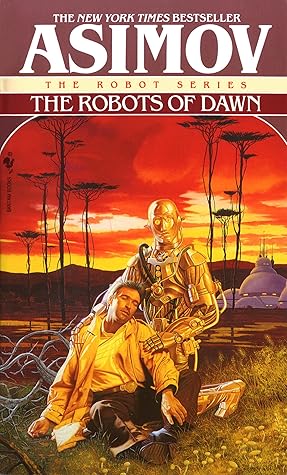More on this book
Community
Kindle Notes & Highlights
History was interesting to the extent that it was catastrophic and, while that might make absorbing viewing, it made horrible living.
But then, why should he be surprised? He had long known that it was easier to see another’s follies than one’s own.
“By finding it impossible to eliminate a possibility, a beginning is made at establishing one.”
With all he knew—intellectually—about thunderstorms, he could not face—viscerally—the actuality. Despite the descriptions, the collections of words, the sight in small pictures and on small screens, the sounds captured in recordings; despite all that, he had no idea the flashes were so bright and streaked so across the sky; that the sound was so vibratorily bass in sound when it rattled across a hollow world; that both were so sudden; and that rain could be so like an inverted bowl of water, endlessly pouring.
The robot had no feelings, only positronic surges that mimicked those feelings. (And perhaps human beings had no feelings, only neuronic surges that were interpreted as feelings.)
For the first time in his life, Baley found himself envying a robot. Imagine being able to walk through that; to be indifferent to water, to sight, to sound; to be able to ignore surroundings and to have a pseudo-life that was absolutely courageous; to know no fear of pain or of death, because there was no pain or death. And yet to be incapable of originality of thought, to be incapable of unpredictable leaps of intuition— Were such gifts worth what humanity paid for them?
Shame would have to be stronger than fear.


